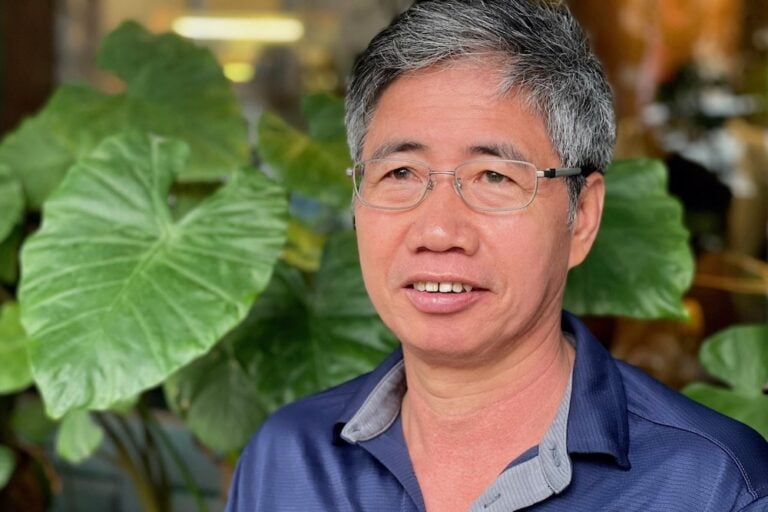(HRW/IFEX) – The following is an 11 March 1999 Human Rights Watch press release: **Updates IFEX alert of 11 March 1999** HUMAN RIGHTS WATCH DENOUNCES ARREST OF VIETNAMESE DISSIDENT (New York, March 11, 1999) — Human Rights Watch denounced the arrest of geologist and writer Nguyen Thanh Giang on March 4, 1999 on the streets […]
(HRW/IFEX) – The following is an 11 March 1999 Human Rights Watch press
release:
**Updates IFEX alert of 11 March 1999**
HUMAN RIGHTS WATCH DENOUNCES ARREST OF VIETNAMESE DISSIDENT
(New York, March 11, 1999) — Human Rights Watch denounced the arrest of
geologist and writer Nguyen Thanh Giang on March 4, 1999 on the streets
of
Hanoi by police, reportedly for possessing anti-socialist propaganda. He
was
escorted to his home, where he picked up a number of personal belongings
and
was then taken away by police. Nguyen Thanh Giang’s current whereabouts
are
not known, and charges against him have not been made public.
“Nguyen Thanh Giang’s arrest is an assault on freedom of expression, and
he
should be immediately and unconditionally released,” said Sidney Jones,
Asia
director of Human Rights Watch. “The charge of ‘possessing
anti-socialist
propaganda’ means he could be convicted simply for possessing some of
his
own writings,” She said that Vietnam had obligations to respect freedom
of
expression, belief and opinion under the International Covenant on Civil
and
Political Rights and its own Constitution.
Human Rights Watch has learned that Nguyen Thanh Giang may be sentenced
for
crimes against national security under the Criminal Code. It is possible
that he will be charged under Article 82, “the crime of anti-socialist
propaganda,” which criminalizes the mere act of expressing a political
opinion seen as injurious to the state or keeping or circulating
material
that does the same. If convicted under Article 82, Nguyen Thanh Giang
could
face three to twelve years in prison.
A respected geologist and outspoken intellectual, Giang, sixty-three,
has
openly advocated human rights and multiparty democracy since 1989. In
recent
years he has issued a number of public letters calling for peaceful
reforms.
In his writings he has criticized “red capitalists” within the Communist
Party and denounced violations of human rights, while calling for “real
democracy in which people from both the top and the bottom would equally
benefit. His writings include “Human Rights, the Thousand Year
Aspiration”
(1996), “Election and the National Assembly” (1997), and “Let’s Discuss
the
Vietnamese Workers Class” (1998).
Over the years Giang has been summoned for questioning by the police and
criticized by his co-workers and neighbors. In addition, his family has
been
harassed, and restrictions have occasionally been placed on his travel.
After attempting to run for National Assembly as an independent
candidate in
Hanoi in 1992, Giang came under more scrutiny from officials. In 1997 he
was
frequently interrogated by police and denounced as a traitor in meetings
organized in the Hanoi neighborhood where he lives. In March 1998,
police
detained Giang for four days, charging that he was illegally
distributing
another dissident’s poetry anthology. After he threatened to go on
hunger
strike he was released. In May 1998, Giang was summoned to the Cultural
Police Headquarters, where he was advised to stop criticizing the
party’s
polices.
Dissident writers in Vietnam face tight government control and
repression in
Vietnam. Despite amnesties in October and November 1998 of several
well-known political prisoners, dozens of dissidents remain under
surveillance or threat of arrest, or held in “administrative detainment”
under Directive 31/CP, which authorizes detention without trial for up
to
two years by the Ministry of Interior.


